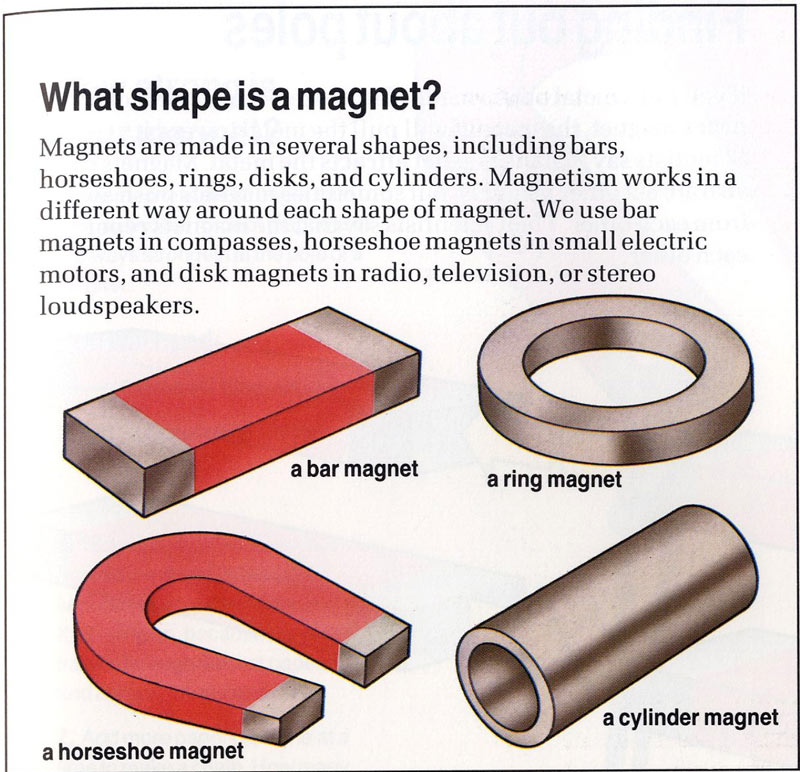The Magic of Magnets Exploring Their Key Characteristics

Have you ever stopped to consider the seemingly simple magnet? These unassuming objects hold a fascinating power, shaping our world in ways we might not always realize. From the fridge door to complex medical equipment, magnets play a vital role. But what exactly makes a magnet a magnet? What are the fundamental characteristics that give them their unique abilities? This exploration delves into the core properties of magnets, unraveling their mysteries and revealing their significance.
At the heart of every magnet are three essential properties: magnetic attraction and repulsion, the creation of magnetic fields, and the ability to magnetize other materials. These three interconnected characteristics define how magnets interact with their surroundings and each other. Understanding these properties unlocks the secrets of magnetic force and allows us to harness its power for countless applications.
The concept of magnetism has captivated humans for centuries. Early civilizations discovered naturally occurring magnets, like lodestones, and were intrigued by their ability to attract iron. The Chinese were among the first to use magnets for navigation, creating rudimentary compasses that pointed south. Over time, our understanding of magnetism evolved, leading to the development of artificial magnets and the integration of magnetic principles into countless technologies.
The significance of magnetic properties is immense. They are the foundation of technologies ranging from simple electric motors to complex MRI machines. Magnets are essential for generating electricity, storing data on hard drives, and even levitating high-speed trains. Without a grasp of the three key properties, much of modern technology would be impossible.
One of the main issues related to magnetism is the potential for magnetic interference. Strong magnetic fields can disrupt electronic devices and data storage. Understanding how magnets interact and how to shield sensitive equipment is crucial for ensuring reliable operation in various technological applications.
Let's break down each property: Magnetic attraction and repulsion is perhaps the most recognizable characteristic. Magnets attract ferromagnetic materials like iron, nickel, and cobalt, while repelling other magnets depending on their pole orientation. Like poles (north and north, south and south) repel, while opposite poles attract.
Every magnet generates a magnetic field, an invisible area of influence that surrounds it. This field is responsible for the forces of attraction and repulsion. Magnetic field lines, often visualized using iron filings, illustrate the direction and strength of the field. The field is strongest near the poles and weakens with distance.
Finally, magnets can induce magnetism in certain materials. When a ferromagnetic material is placed within a magnetic field, it can become temporarily or permanently magnetized. This ability is crucial for creating electromagnets and is the basis for data storage on magnetic media.
The benefits of understanding magnetic properties are numerous. First, it allows for the design and improvement of existing technologies. Second, it fosters innovation, leading to the development of new magnetic materials and applications. Finally, it empowers us to utilize magnetic forces safely and effectively.
Advantages and Disadvantages of Utilizing Magnetic Properties
| Advantages | Disadvantages |
|---|---|
| Enable various technologies | Potential for magnetic interference |
| Efficient energy conversion | Can be demagnetized under certain conditions |
| Non-contact force application | Limited range of effective interaction |
Best Practices for Utilizing Magnetic Properties:
1. Proper shielding for sensitive electronics.
2. Careful selection of magnet strength for specific applications.
3. Understanding temperature effects on magnetism.
4. Correct pole orientation for desired interaction.
5. Regular inspection and maintenance of magnetic components.
Real-World Examples:
1. MRI machines using powerful magnets for medical imaging.
2. Electric generators converting mechanical energy to electrical energy.
3. Magnetic storage devices preserving data on hard drives and tapes.
4. Magnetic levitation trains achieving high-speed transportation.
5. Simple compasses utilizing Earth's magnetic field for navigation.
FAQ:
1. What is a magnet? A material that produces a magnetic field and can attract ferromagnetic materials.
2. What are the poles of a magnet? Regions of a magnet where the magnetic field is strongest, designated as north and south.
3. How does a compass work? It aligns with Earth's magnetic field, indicating direction.
4. Can magnets be demagnetized? Yes, through heating, strong impacts, or exposure to opposing magnetic fields.
5. What is an electromagnet? A magnet created by passing an electric current through a coil of wire.
6. How are magnets used in data storage? Magnetic fields are used to represent data on magnetic media.
7. What are some safety concerns with magnets? Strong magnets can interfere with pacemakers and other medical devices.
8. How can I learn more about magnets? Explore educational websites, science books, and interactive museum exhibits.
Tips and tricks related to magnets include understanding the impact of temperature on magnet strength and using keepers to preserve the magnetism of permanent magnets.
In conclusion, the three fundamental properties of magnets—attraction and repulsion, magnetic fields, and induced magnetism—are the cornerstones of a vast range of technologies and applications that shape our modern world. From the simplest compass to the most complex medical imaging equipment, understanding these properties is crucial. By continuing to explore and harness the power of magnets, we can unlock new possibilities and drive further innovation. This knowledge empowers us to utilize magnets effectively, safely, and with a deeper appreciation for their remarkable influence on our lives. Take a moment to consider the unseen forces at play, the magnetic interactions that power our world, and the incredible potential that lies within these seemingly simple objects. The journey into the world of magnets is a journey into the heart of scientific discovery.
Unlocking the seas your guide to marine boat ignition switches
Fridge dead compressor start relay kit might be your savior
Reliable roadside assistance hartselle al






/magnetism-147220256-5b4e02d8c9e77c001acf54e3.jpg)





